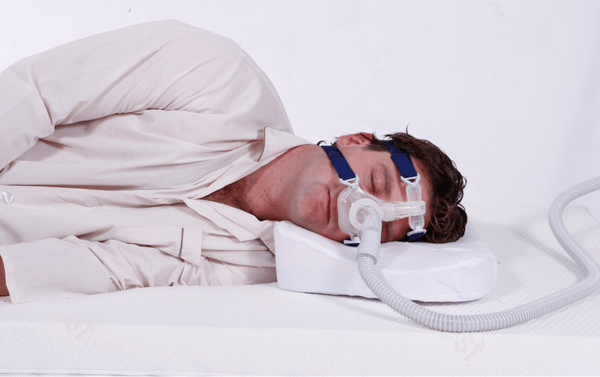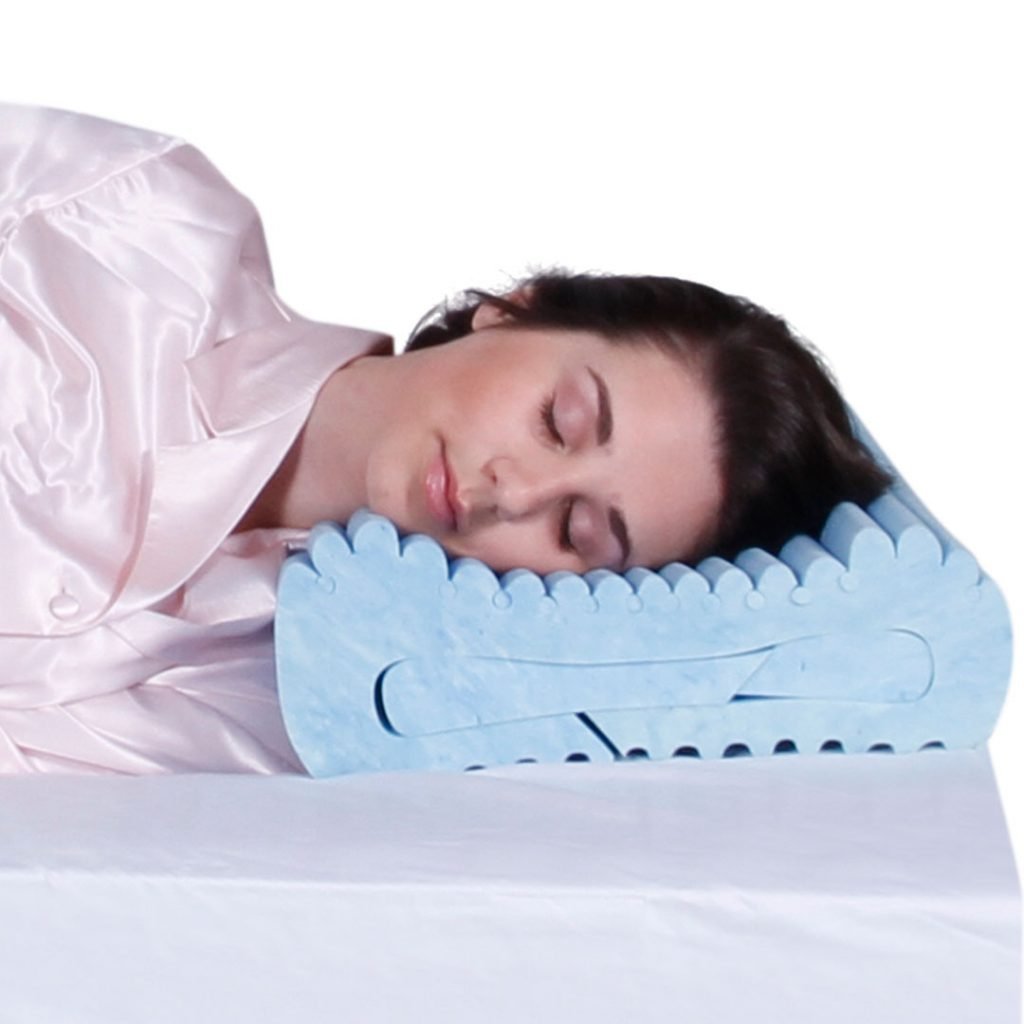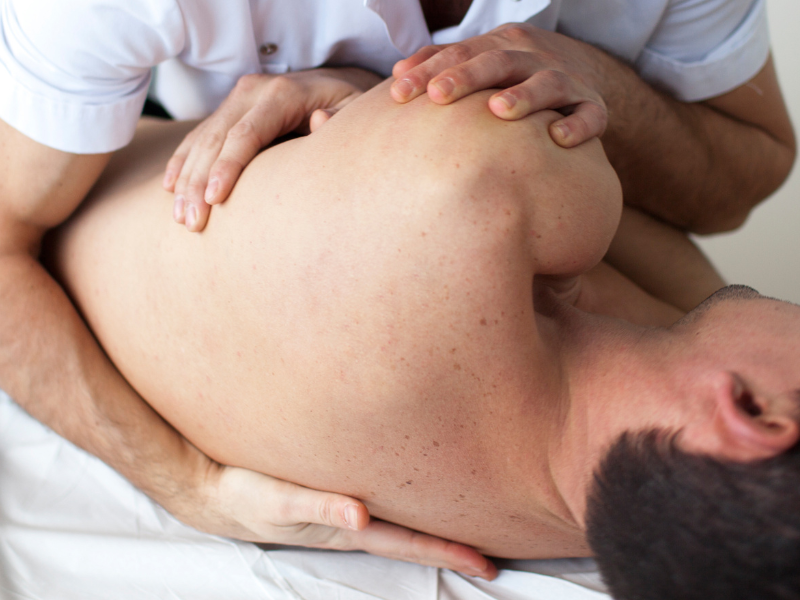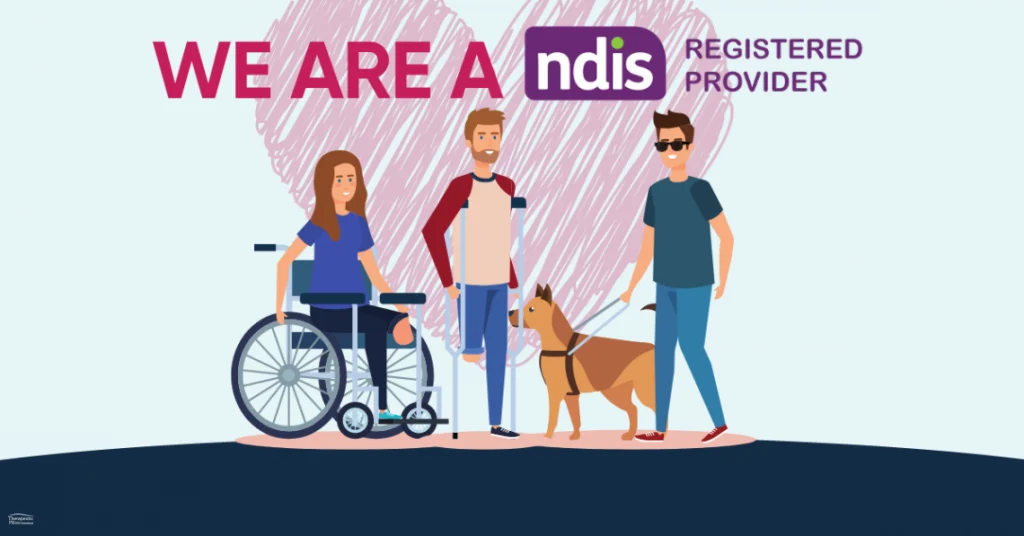Today, over 2 million Australians have been diagnosed with sleep apnea, a condition that interrupts your breathing when asleep.
Sleep apnea is most common in men who are overweight, but it can affect anyone at any age. The dangers of sleep apnea are well documented as the side effects from this condition range from not getting a restful night’s sleep up to in rare cases death as the passageway remains blocked.
However, in almost all cases sleep apnea can be successfully treated sometimes with surgery, but also in many cases by losing the excess weight and using different sleep methods and products that can help keep the airways clear. The many common devices that are used include the continuous positive airway pressure (CPAP) machine and mouth applications that help keep the airways open while allowing for restful sleep to take place. One of the more interesting ways to treat sleep apnea is through the use of a medical pillow designed to properly support the head and neck which greatly reduces the chances of sleep apnea becoming an issue during the night.
What is a Sleep Apnea Pillow?
Designed for sleep apnea treatment, the cpap pillow is actually an extension of what many sufferers of sleep apnea have been doing for years to help get the proper support needed. This medical pillow is one that provides the proper support naturally without having to fold or bunch like you would a normal pillow. This particular type of pillow is generally recommended by doctors if your sleep apnea is mild in nature or if CPAP and other devices are not readily available. This particular sleep apnea treatment uses a pillow that is generally wedge-shaped in nature and is designed to raise up your upper body. This is important because one of the issues that plague sleep apnea patients is that their upper body actually sinks downwards and they have to fight gravity which adds to the stress placed on the body.
The American Sleep Apnea Association has recommended to those who suffer from this condition that sleeping on their back and elevating the head, neck and upper body will help keep the airways open so that they are in less danger of collapsing. This is why the medical pillow used is a foam wedge and not a typical soft pillow. The wedge design is such that it will hold up night after night to help prevent the upper body from sinking lower and making the condition of sleep apnea even worse. Of course, the foam will not hold its shape forever, so it must be replaced every so often.

The positive effect of the sleep apnea medical pillow
If a CPAP machine is not practical and other treatments such as the famous “tennis ball” do not keep the person suffering from sleep apnea from resting on their back, then the pillow offers some real positive advantages.
When you sleep, your body will change positions several times during the night. This means that there will be times when you are on your back even if you did not start off in that position. By ensuring that your head, neck and upper body are elevated, the effects of sleep apnea are not nearly so pronounced. This is because the overall weight that the body places on the neck and throat area is less which results in fewer instances of the person stopping their breathing when asleep.
Sleep position:
When you sleep, your body will change positions several times during the night. This means that there will be times when you are on your back even if you did not start off in that position. By ensuring that your head, neck and upper body are elevated, the effects of sleep apnea are not nearly so pronounced. This is because the overall weight that the body places on the neck and throat area is less which results in fewer instances of the person stopping their breathing when asleep.
Encourages sleeping on the side:
The effects of sleep apnea are far less when the body is resting on the side and not the back. This is because there is less weight pressing against the neck and throat and the head is naturally elevated. The pillow helps to encourage sleeping on your side which can be an excellent sleep apnea treatment to keep you off your back in the middle of the night.
Works well with CPAP machines:
The combination of the medical pillow and CPAP machine greatly reduces the effects of sleep apnea and encourages deep sleep. In fact, there are certain pillows that help reduce the overall pressure of the mask as well as keep it in the right position so that it does not rotate to another location and become useless. This is a very important factor in choosing the right CPAP pillow for your sleep apnea treatment.
Why you should choose a sleep apnea pillow?
There are many reasons why such a pillow works well for those who suffer from sleep apnea as well as those who snore loudly at night. Of course, you will need to get the right type of pillow that holds up to proper medical standards in order to be effective.
Do you want to learn more? Read our Frequently Asked Questions for...
Sleep apnea is a common sleep disorder that affects many people worldwide. While it cannot be completely cured, it can be effectively managed and controlled with appropriate treatment. Sleep apnea is characterized by pauses in breathing or shallow breaths during sleep, leading to disrupted sleep patterns and daytime fatigue.
The most common treatment for sleep apnea is continuous positive airway pressure (CPAP) therapy. This involves wearing a mask over the nose or mouth during sleep, which delivers a constant flow of air to keep the airways open. Other treatment options include lifestyle changes, such as weight loss and avoiding alcohol and sedatives before bedtime. In some cases, surgery may be recommended to remove excess tissue or correct structural abnormalities in the airways.
It's important to remember that sleep apnea is a chronic condition that requires ongoing management. With the right treatment and lifestyle adjustments, individuals with sleep apnea can experience significant improvement in their symptoms and overall quality of sleep. If you suspect you may have sleep apnea, it is advisable to consult a healthcare professional for a proper diagnosis and personalized treatment plan.
 0
0 0
0Sleep apnea is a sleep disorder that causes interruptions in breathing during sleep. It can lead to daytime fatigue, loud snoring, and other health issues. Treating sleep apnea typically involves a combination of lifestyle changes, medical interventions, and the use of devices.
One effective way to manage sleep apnea is by making certain lifestyle adjustments. Maintaining a healthy weight, exercising regularly, and avoiding alcohol and sedatives can help reduce symptoms. Additionally, sleeping on your side instead of your back and keeping your nasal passages clear can improve breathing during sleep.
Medical interventions may also be necessary to treat sleep apnea. Continuous positive airway pressure (CPAP) therapy is a common treatment method. It involves wearing a mask over your nose or mouth while you sleep, which delivers a steady stream of air to keep your airways open. Other options include oral appliances that help keep the airway open or surgery to remove excess tissue blocking the airway.
Managing sleep apnea involves a combination of lifestyle changes, medical interventions, and the use of devices. By adopting healthy habits, seeking medical advice, and exploring treatment options, individuals with sleep apnea can improve their sleep quality and overall well-being.
 0
0 0
0Sleep apnea is a common sleep disorder that affects breathing during sleep. It occurs when a person's airway becomes partially or completely blocked, leading to pauses in breathing or shallow breaths. These interruptions can happen multiple times throughout the night, disrupting the normal sleep cycle and causing various symptoms.
People with sleep apnea often experience excessive daytime sleepiness, loud snoring, and frequent awakenings during the night. They may also wake up with a dry mouth or headache. Sleep apnea can have serious health consequences if left untreated, including an increased risk of high blood pressure, heart disease, and stroke.
If you suspect you or someone you know may have sleep apnea, it is important to consult a healthcare professional for a proper diagnosis and treatment options. Treatment may involve lifestyle changes, such as weight loss or sleeping in a different position, as well as the use of a continuous positive airway pressure (CPAP) machine or other devices to help keep the airway open during sleep. Managing sleep apnea can greatly improve sleep quality and overall well-being.
 0
0 0
0








